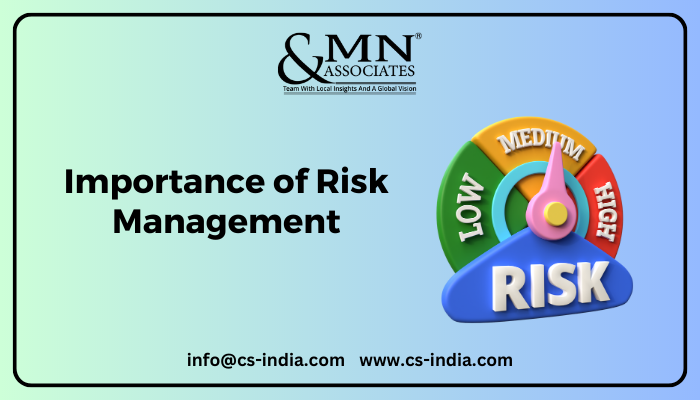The Importance and Importance of Risk Management in Ensuring Corporate Continuity
The Importance and Importance of Risk Management in Ensuring Corporate Continuity
Blog Article
The Value of Understanding the Significance of Risk Management in Numerous Industries

The Core Idea of Risk Management and Its Objective
Risk Management, the foundation of many markets, rests on the identification, examination, and mitigation of uncertainties in a company atmosphere. It is an important method that allows organizations to guard their possessions, track record, and general survival. By appropriately identifying possible dangers, businesses can establish approaches to either protect against these dangers from happening or reduce their effect. The assessment procedure entails examining the chance and possible extent of these threats. When risks have been recognized and assessed, the reduction process entails developing techniques to minimize their prospective influence. This process is intermittent and recurring, guaranteeing that services are gotten ready for the ever-changing nature of Risk in various markets. The primary purpose, therefore, is to cultivate resilience among uncertainties.
Benefits of Applying Risk Management in Service Operations

Introducing the Role of Risk Management in Different Industries
While every industry faces its one-of-a-kind collection of risks, the execution of Risk Management strategies continues to be an usual denominator in their pursuit of sustainability and growth. In the healthcare sector, Risk Management requires ensuring individual safety and security and data protection, while in finance, it includes mitigating financial investment dangers and guaranteeing regulative conformity. Ultimately, the duty of Risk Management across industries is to recognize, examine, and reduce risks.
Real-life Study Showing Successful Risk Management
To recognize the importance of Risk Management in these several fields, one can seek to numerous real-life instances that illustrate the successful application of these actions. In the power sector, British Oil developed Risk reduction plans post the 2010 Gulf of Mexico oil spill. They carried out go to my site much better safety treatments and more stringent regulations which substantially minimized additional mishaps. In financing, Goldman Sachs successfully browsed the 2008 financial crisis by recognizing potential mortgage-backed protections threats early. Toyota, upload the 2011 quake in Japan, changed its supply chain Management to decrease disturbance risks. These instances demonstrate how industries, learning from situations, successfully applied Risk Management approaches to minimize future risks.
Future Patterns and Advancements in Risk Management Methods
As the world remains to progress, so as well do the patterns and growths in Risk Management methods. Quick innovations in technology and information analytics are reshaping the Risk landscape. Big data and AI are now crucial in anticipating and minimizing risks. Organizations are leveraging these devices to construct anticipating versions and make data-driven choices. Cybersecurity, when an outer problem, has catapulted to the center of Risk Management, with strategies concentrating on avoidance, discovery, and action. The assimilation of ESG (Environmental, Social, Governance) factors right into Risk visit this site Management is an additional find more expanding fad, showing the boosting acknowledgment of the role that social and ecological threats play in service sustainability. Thus, the future of Risk Management lies in the combination of sophisticated innovation, ingenious approaches, and an all natural technique.
Final thought
In final thought, recognizing the value of Risk Management across a range of industries is essential for their longevity and prosperity. Inevitably, effective Risk Management contributes to more lasting and durable businesses, highlighting the value of this method in today's dynamic and highly affordable service setting.
While every industry challenges its distinct set of dangers, the application of Risk Management approaches stays an usual denominator in their pursuit of sustainability and development. In the healthcare market, Risk Management involves making sure client security and data protection, while in finance, it includes mitigating financial investment threats and ensuring regulative compliance. Inevitably, the duty of Risk Management across sectors is to identify, analyze, and alleviate risks. These situations show exactly how sectors, discovering from crises, successfully used Risk Management approaches to lower future dangers.

Report this page